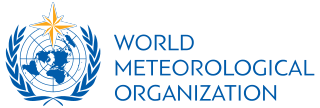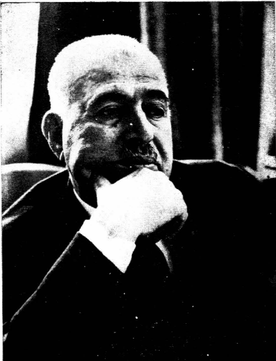
Sudan, officially the Republic of the Sudan, is a country in Northeast Africa. It borders the Central African Republic to the southwest, Chad to the west, Egypt to the north, Eritrea to the northeast, Ethiopia to the southeast, Libya to the northwest, South Sudan to the south, and the Red Sea. It has a population of 45.7 million people as of 2022 and occupies 1,886,068 square kilometres, making it Africa's third-largest country by area and the third-largest by area in the Arab League. It was the largest country by area in Africa and the Arab League until the secession of South Sudan in 2011; since then both titles have been held by Algeria. Its capital and most populous city is Khartoum.

The foreign relations of Sudan are generally in line with the Muslim Arab world, but are also based on Sudan's economic ties with the People's Republic of China and Russia.

The World Meteorological Organization (WMO) is a specialized agency of the United Nations responsible for promoting international cooperation on atmospheric science, climatology, hydrology and geophysics.

The Arab world, formally the Arab homeland, also known as the Arab nation, the Arabsphere, or the Arab states, comprises a large group of countries, mainly located in Western Asia and Northern Africa. While the majority of people in the Arab world are ethnically Arab, there are also significant populations of other ethnic groups such as Berbers, Kurds, Somalis and Nubians, among other groups. Arabic is used as the lingua franca throughout the Arab world.

Amany Asfour is a businessperson from Egypt.

The Middle East and North Africa (MENA), also referred to as West Asia and North Africa (WANA) or South West Asia and North Africa (SWANA), is a geographic region. While still referring to most of the Middle East and North Africa together, it is widely considered to be a more defined and apolitical alternative to the grouping of countries that is known as the Greater Middle East, which comprises the bulk of the Muslim world.
The 2006 dengue outbreak in Pakistan was at the time the worst on record. There were 1931 lab-confirmed cases, and 41 confirmed deaths, according to the World Health Organization Regional Office for the Eastern Mediterranean. Other sources report a death toll of 52.
University of Gezira, or U of G, is a public university located in Wad Medani, Sudan. It is a member of the Federation of the Universities of the Islamic World.

Eastern Mediterranean is a loose definition of the eastern approximate half, or third, of the Mediterranean Sea, often defined as the countries around the Levantine Sea.
Evidence Informed Policy Network (EVIPNet) is a network, sponsored by the World Health Organization (WHO), which attempts to improve public health, especially in developing countries, by coordinating the efforts of policymakers and health researchers.

The Bulletin of the World Health Organization is a monthly public health journal published by the World Health Organization that was established in 1948. Articles are published in English and abstracts are available in Arabic, Chinese, English, French, Russian, and Spanish. According to the Journal Citation Reports, the journal has a 2022 impact factor of 11.1, ranking it 12th out of 207 journals in the category "Public, Environmental & Occupational Health".
The Pan American Journal of Public Health is a peer-reviewed open-access public health journal covering research and case studies on issues of public health significance, mainly in areas related to national and local health systems, to improve the health of the peoples of the Americas. The journal is published monthly by the Pan American Health Organization, a regional office of the World Health Organization. Articles are published in English, Portuguese, and Spanish.

The WHO Regional Office for the Eastern Mediterranean is the regional office of the World Health Organization that serves 22 countries and territories in West Asia, North Africa, the Horn of Africa and Central Asia. It is one of the WHO's six regional offices around the world.
Raqiya Haji Dualeh Abdalla is a Somali sociologist and politician. She has held a number of senior policy-making posts in governmental, non-governmental and international institutions, including as Vice Minister of Health of Somalia. She was also a founding member of the Somali Women's Democratic Organization (SWDO), serving as the group's Acting Chairperson and Vice President. Additionally, Raqiya is the founder and President of the Somali Family Care Network.

Akjemal Magtymova is a Turkmen physician, working in the field of public health and development as an international civil servant with the United Nations.
Hanan H. Balkhy is a Saudi physician who currently serves as the first Assistant Director of Antimicrobial Resistance at the World Health Organization.

Naeema Al-Gasseer is an academically trained nurse and midwife, retired global health manager and resident representative, who has been working for the World Health Organization in their Eastern Mediterranean region and national health programs for more than 30 years. As such, her professional career encompasses experience in national, regional and international health systems, in women's health, as well as in humanitarian and development programs.
World Health Organization (WHO) public health prizes and awards are given to recognise major achievements in public health. The candidates are nominated and recommended by each prize and award selection panel. The WHO Executive Board selects the winners, which are presented during the World Health Assembly. Some of these awards are originally stated by WHO and other were inherited from the League of Nations.

Sir Aly Tewfik Shousha, Pasha was an Egyptian doctor and a founding member of the World Health Organization.











